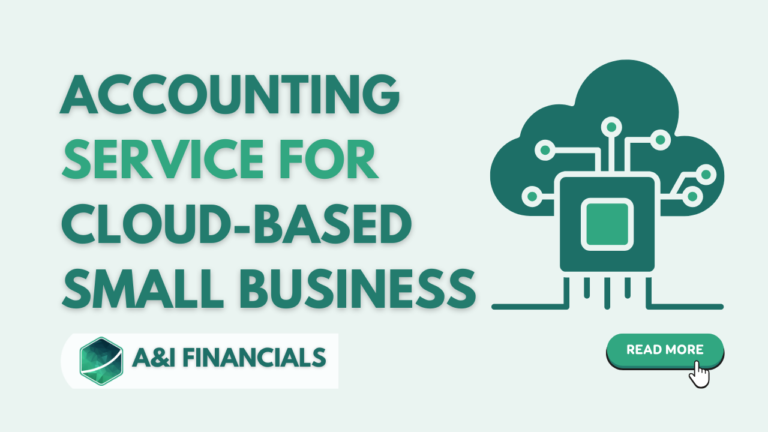8 Ways How Accountants Can Improve Cash Flow Management? With Examples
Cash flow is like the heartbeat of a business. It’s what keeps everything moving, from paying employees to investing in growth opportunities. But managing cash flow effectively can be tricky, especially if you don’t have a handle on what’s coming in and going out. This is where accountants can step in and save the day.
How can accountants improve cash flow management? By providing insights, strategies, and tools that ensure money is flowing smoothly and predictably. Let’s dive into the world of cash flow management and explore how accountants can make a difference.
What Is Cash Flow Management?
Cash flow management is the process of tracking how much money is coming into and going out of your business. It’s about making sure you have enough money to pay your bills while also having some left over to invest in growth or save for the future. It involves everything from setting payment terms with clients to managing your invoicing process.
Accountants play a crucial role in cash flow management. They analyze financial statements, prepare cash flow projections, and help businesses develop cash flow management strategies. By leveraging technology and using accounting software, accountants can provide real-time insights into your cash flow situation and make informed decisions that improve your cash flow.
The Role of Accountants in Cash Flow Management
Accountants are like financial detectives. They have the tools and expertise to dive deep into your financial records, analyze your cash flow, and provide insights that can help you manage your money more effectively. Here’s how accountants can improve cash flow management and why their role is so important:
Budgeting and Forecasting
Accountants play a vital role in budgeting and forecasting, which are key components of effective cash flow management. They help create a realistic budget based on historical data and future projections, allowing businesses to anticipate income and expenses.
By doing so, accountants can provide an accurate forecast, helping business owners make informed decisions about spending and saving. This ensures that businesses have enough cash on hand to meet their obligations and invest in growth opportunities.
Example: If a business expects a significant expense in the coming months, an accountant can adjust the budget to ensure there’s enough cash available when needed.
Managing Invoices
Managing invoices is crucial for maintaining a healthy cash flow. Accountants can streamline the invoicing process, ensuring that invoices are sent out promptly and accurately. They also monitor payment terms and follow up on overdue invoices, which can significantly impact cash flow.
By optimizing the invoicing process, accountants help businesses get paid faster, improving cash flow and reducing the time spent chasing payments.
Example: An accountant might implement a system that automatically sends reminders to clients with overdue payments, encouraging them to settle their accounts promptly.
Credit Management
Credit management is another area where accountants can make a significant difference. They assess credit terms with clients and suppliers, ensuring that they are favorable for maintaining a positive cash flow. By carefully managing credit, accountants can help businesses avoid cash flow issues related to late payments or unfavorable credit terms.
Example: An accountant may advise a business to renegotiate payment terms with a supplier to allow more time to pay, aligning cash inflows with outflows.
Inventory Management
Effective inventory management can have a big impact on cash flow. Accountants analyze inventory levels and turnover rates to ensure that businesses aren’t tying up too much cash in stock. By finding the right balance, accountants can help businesses avoid overstocking or understocking, both of which can negatively impact cash flow.
Example: An accountant might notice that a business has excess inventory sitting in a warehouse. They could recommend strategies to reduce inventory levels, freeing up cash for other needs.
Creating Capital Expense Analyses
Capital expenses are large, long-term investments, and managing them requires careful planning. Accountants create capital expense analyses to evaluate the financial impact of these investments. They assess whether the investment aligns with the company’s cash flow management strategy and whether it’s feasible given the current financial situation.
Example: Before purchasing new equipment, an accountant would analyze the cost and potential return on investment, ensuring that the purchase aligns with the business’s financial goals and cash flow capabilities.
Timing Expenses
Timing expenses is a strategic approach to managing cash flow. Accountants help businesses plan their expenses to align with cash inflows, ensuring that there’s enough money available to cover upcoming payments. By timing expenses carefully, businesses can avoid cash shortages and maintain a steady cash flow.
Example: An accountant might suggest delaying a non-essential purchase until the business receives a large payment from a client, ensuring that there’s enough cash on hand to cover essential expenses.
Tax Planning
Tax planning is an often-overlooked aspect of cash flow management. Accountants provide valuable insights into tax obligations, ensuring that businesses set aside enough cash to meet these requirements. By planning for taxes, businesses can avoid unexpected tax bills that can disrupt cash flow.
Example: An accountant can help a business identify tax credits and deductions, reducing the overall tax burden and freeing up cash for other needs.
Using Technology
Technology is transforming the way businesses manage their finances, and accountants are at the forefront of this change. By leveraging technology and using accounting software, accountants can provide real-time insights into your cash flow situation and make informed decisions that improve your cash flow.
With accounting software, accountants can automate data entry, track income and expenses, and prepare detailed cash flow projections. This technology allows for more accurate forecasting, helping businesses anticipate cash flow fluctuations and plan accordingly.
Example: An accountant might use cloud-based accounting software to access financial data in real-time, providing insights into cash flow trends and enabling quick adjustments to cash flow management strategies.
How Accountants of A&I Financials Can Improve Your Cash Flow Management?
The accountants at A&I Financials are experts in cash flow management, offering personalized and strategic solutions that can transform your business’s financial health. With a focus on data-driven insights and strategic planning, they analyze every facet of your financial operations, ensuring optimal cash flow management.
A&I Financials’ team employs state-of-the-art accounting software to provide real-time cash flow analysis and forecasting, allowing you to make informed decisions that align with your business goals. By carefully examining your income and expenses, they help you identify areas where you can cut costs, optimize payment terms, and improve invoicing processes.
Whether you’re a small business owner or a large corporation, A&I Financials tailors their approach to fit your unique needs, ensuring that your business remains financially robust and agile. Their proactive strategies extend to tax planning and regulatory compliance, safeguarding your business against unforeseen financial pitfalls.
With their commitment to precision and innovation, A&I Financials not only enhances your cash flow management but also empowers you to seize growth opportunities and achieve sustained success.
Conclusion: The Importance of Cash Flow Management
In conclusion, cash flow management is a critical aspect of running a successful business. By improving cash flow management, you can reduce financial stress, improve client relationships, and set your business up for long-term success. Accountants play a crucial role in cash flow management, providing insights, strategies, and tools that help businesses improve their cash flow and financial health.
So, how can accountants improve cash flow management? By analyzing cash flow statements, preparing cash flow projections, identifying cash flow issues, developing cash flow management strategies, leveraging technology, and utilizing accounting software. By following these strategies and working with an accountant, you can ensure that your business has enough money to cover its expenses and invest in growth opportunities.
Remember, effective cash flow management is about making informed decisions, optimizing your resources, and setting your business up for success. With the right strategies and the help of an accountant, you can improve your cash flow management and achieve your business goals.







